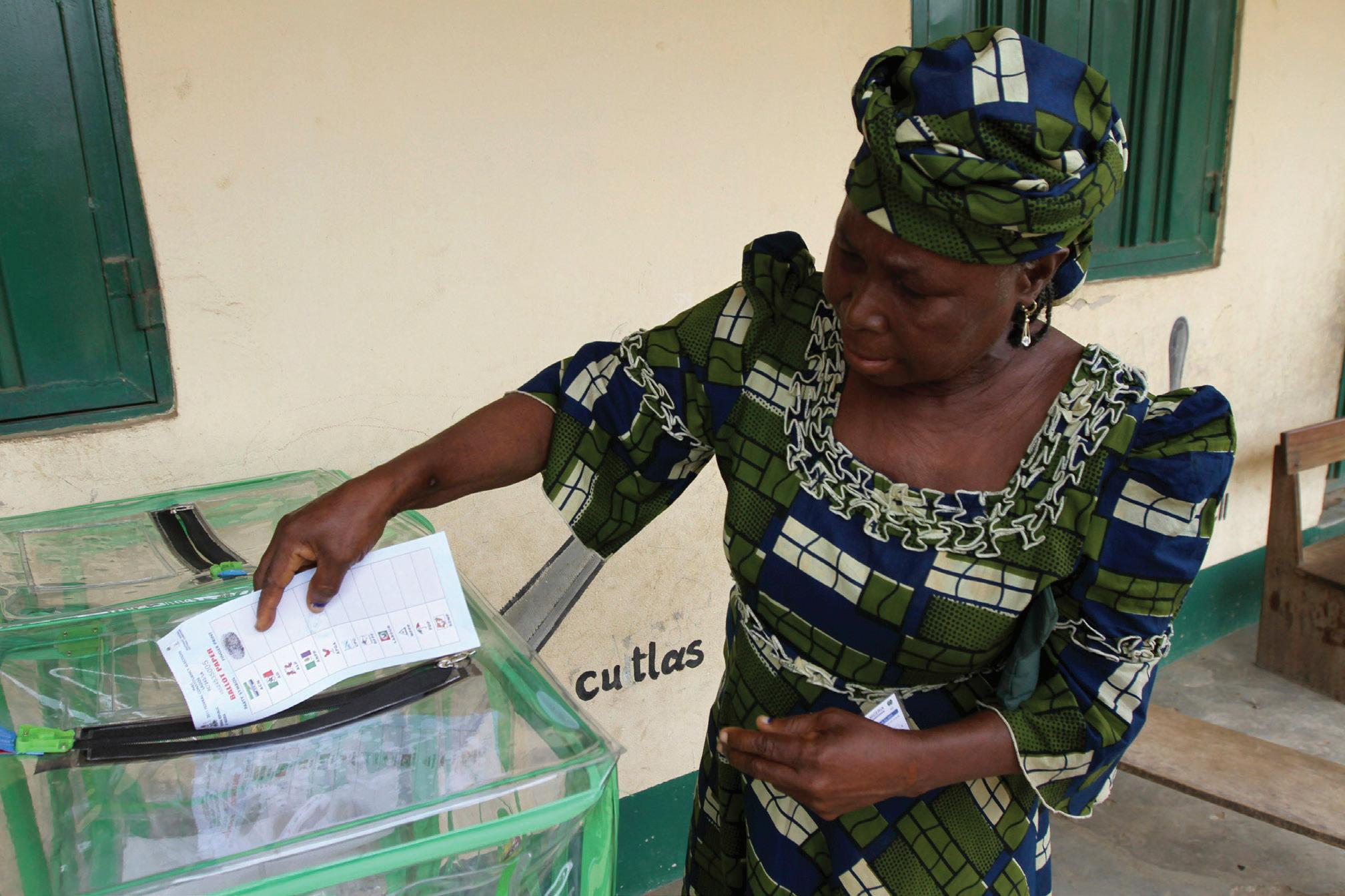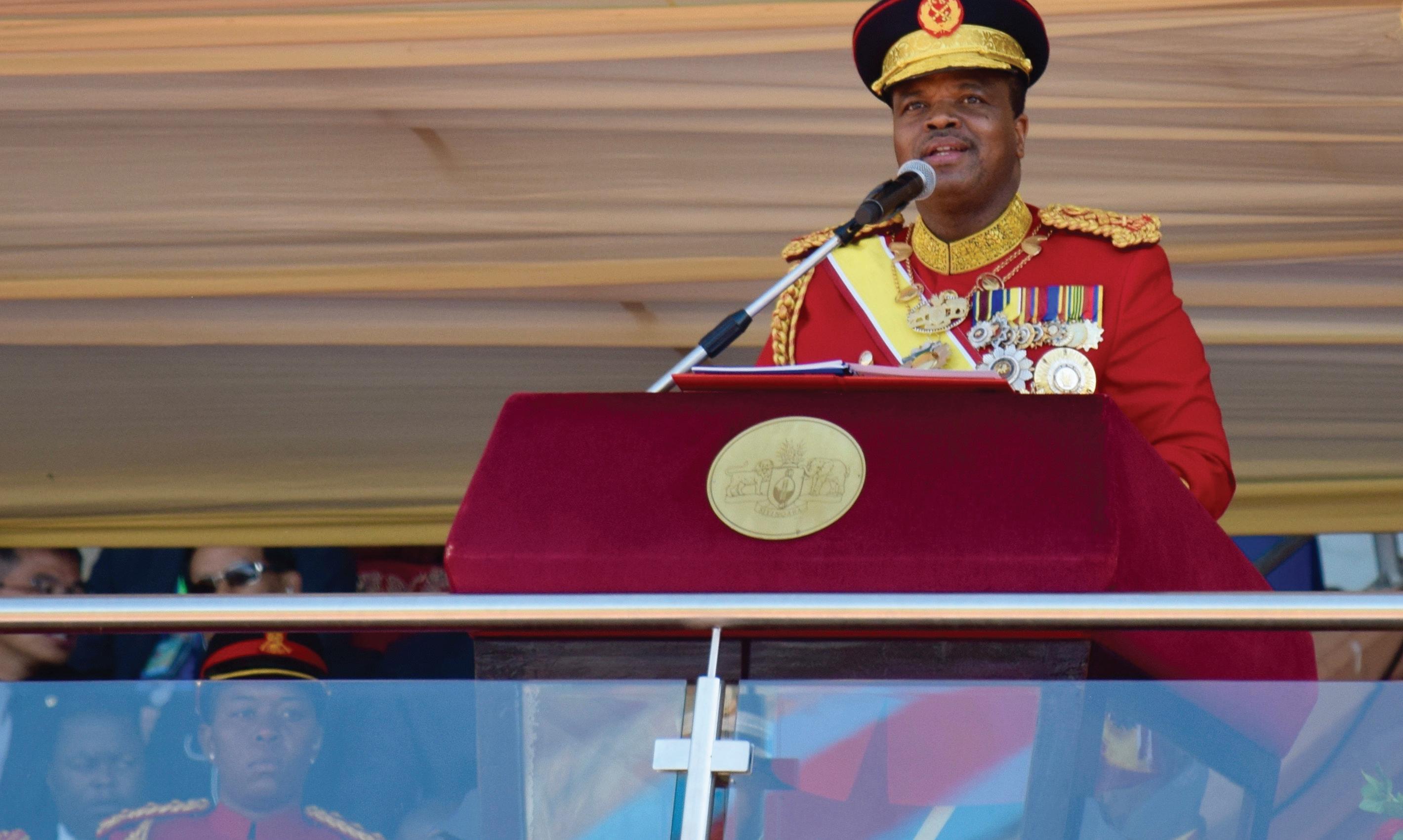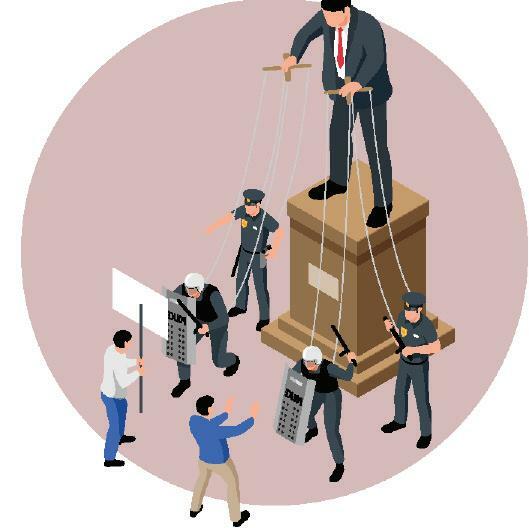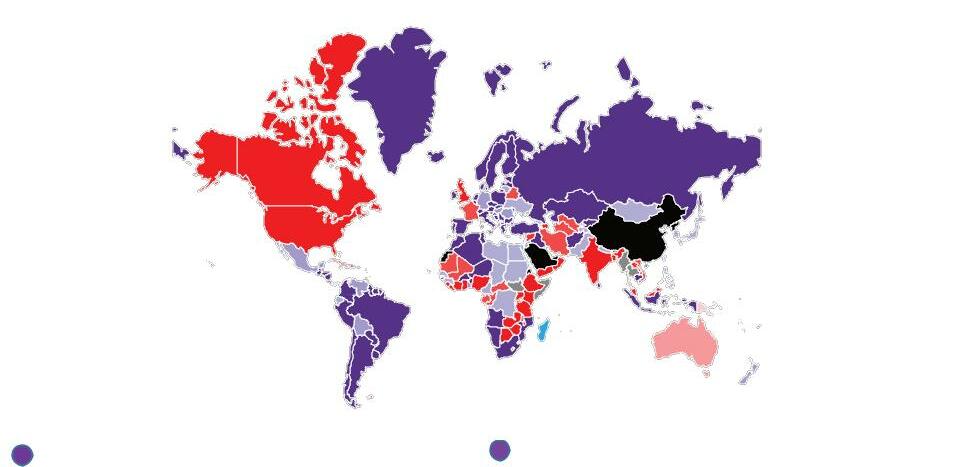
10 minute read
Methodologies And Techniques To Be Used For The Facilitation
What is a Political System?
A political system is the set of formal legal institutions that constitute a “government” or a “state.” More broadly defined, however, the term refers to actual as well as prescribed forms of political behaviour, not only the legal organisation of the state but also the reality of how the state functions. Still more broadly defined, the political system is seen as a set of “processes of interaction” or as a subsystem of the social system interacting with other non-political subsystems, such as the economic system. This points to the importance of informal socio-political processes and emphasizes the study of political development.
Various states and governments observably exist around the world. In this context, state means the political unit within which power and authority reside. This unit can be a whole nation or a subdivision within a nation. Government means the group of persons who direct the political affairs of a state, but it can also mean the type of rule by which a state is run. Another term for this second meaning of government is political system, which we will use here alongside the term government. The type of government under which people live has fundamental implications on their freedom, their welfare, and even their lives.
Democracy
on various issues such as the budget and other matters. However, such direct democracies are impractical when the number of people gets beyond a few hundred. Representative democracies are thus much more common. In these types of democracies, people elect officials to represent them in legislative votes on any matters affecting the population.
Representative democracy is more practical than direct democracy in a society of any significant size, but political scientists cite another advantage of representative democracy. At least, in theory, it ensures that the individuals who govern society-and in other ways help a society function-are the individuals who have the appropriate talents, skills, and knowledge to do so. Using this logic, the masses of people are overall, too uninformed, too uneducated, and too uninterested to run society themselves. Representative democracy thus allows for “the cream to rise to the top” so that the people who, in point of fact, govern a society are the most qualified to perform this essential task (Seward, 2010).
The defining feature of representative democracy is voting in elections. When the United States was established more than 230 years ago, most of the world’s governments were monarchies or other authoritarian regimes (discussed shortly). Like the colonists, people in these nations chafed under arbitrary power. The example of the American Revolution and the stirring words of its Declaration of Independence helped inspire the French Revolution of 1789 and other revolutions since proving that people around the world have died to win the right to vote and to acquire the political freedom.
The type of government with which we are most familiar is a democracy, or a political system in which citizens govern themselves either directly or indirectly. The term democracy was coined from Greek words and means “rule of the people.” In Lincoln’s stirring words from the Gettysburg Address, democracy is “government of the people, by the people, for the people.” In direct (or pure) democracies, people make their own decisions about the policies and distribution of resources that affect them directly. An example of such a democracy in action is the New England town meeting, where the residents of a town meet once a year and vote
Woman votes in Nigeria.
Democracies are certainly not perfect. Their decision-making process can be quite slow and inefficient; as just mentioned, decisions may be made for special interests and not “for the people”; and, pervasive inequalities of social class, race and ethnicity, gender, and age can exist. Moreover, in democracies people haven’t always been afforded the right to vote. In the United States, for example, African Americans could not vote until after the Civil War, with the passage of the 15th Amendment in 1870-and women did not win the right to vote until 1920, with the passage of the 19th Amendment.
In addition to generally enjoying the right to vote, people in democracies also tend to have more freedom than those in other types of governments.
Figure 1.1 “Freedom around the World

(Based on Extent of Political Rights and Civil Liberties)” depicts the nations of the world according to the extent of their political rights and civil liberties. The freest nations are found in North America, Western Europe, and certain other parts of the world, while the least free lie in Asia, the Middle East, and Africa.
Source: Adapted from Freedom House. (2010). Map of freedom in the world. Retrieved from http://www.freedomhouse.org/template.cfm?page=363&year=2010.
Monarchy
A monarchy is a political system in which power resides in a single family that rules from one generation to the next generation. The power the family enjoys is traditional authority, and many monarchs command respect because their subjects bestow this type of authority on them. Other monarchs, however, have warranted respect through arbitrary power and even terror. Royal families still rule today, but their power has declined from one century to the next. Eswatini (formerly Swaziland) is the only absolute monarchy left in Africa. King Mswati III together with his mother, Queen Mother Ntombi, rule as monarchs and have veto powers over the three branches of government. The bicameral parliament consists of the Senate and House of Assembly, each composed of both elected members and members appointed by the king. The king also appoints the prime minister. The role of political parties is contested and unclear even under the constitution of 2005. Political parties are not allowed to compete for elections. Human rights issues include restrictions on political participation, corruption,

APRIL 19, 2018: King Mswati III announcing that he will change Swaziland’s name to the Kingdom of eSwatini, with immediate effect.
rape and violence against women linked in part to government inaction and child labor. The government often does not investigate, prosecute, or administratively punish officials who commit human rights abuses. With very few exceptions, the government often fails to identify officials who committed abuses. Impunity is, as such, widespread. King Mswati III acts as if the kingdom is his private property. The business environment is not conducive to to growth due to negative and unpredictable political interference by the royal family and the companies associated with it. The obscene lifestyle of the royal family is in contrast to the living conditions of the majority of people across the country.
In absolute monarchies, the royal family claims a divine right to rule and exercises considerable power over their kingdom. Absolute monarchies were common in both ancient (e.g., Egypt) and medieval (e.g., England and China) times. In reality, the power of many absolute monarchs was not wholly absolute; as kings and queens had to keep in mind the needs and desires of other powerful parties, including the clergy and nobility. Over time, absolute monarchies gave way to constitutional monarchies. In these monarchies, the royal family serves a symbolic and ceremonial role and enjoys little, if any, real power. Instead, the executive and legislative branches of government, the prime minister and parliament in several nations run the government-even if the royal family continues to command admiration and respect. Constitutional monarchies exist today in several nations, including Denmark, Great Britain, Norway, Spain, and Sweden.
Authoritarianism and totalitarianism are general terms for nondemocratic political systems ruled by an individual or a group of individuals who are not freely elected by their populations and who often exercise arbitrary power. To be more specific, authoritarianism refers to political systems in which an individual or a group of individuals holds power, restricts or prohibits popular participation in governance, and represses dissent. Totalitarianism refers to political systems that include all the features of authoritarianism but are even more repressive as they try to regulate and control all aspects of citizens’ lives and fortunes. People can be imprisoned for deviating from acceptable practices or may even be killed if they dissent in the mildest of ways. The purple nations in Figure 1.1 “Freedom around the world (Based on the extent of political rights and civil liberties)” are mostly totalitarian regimes, and the orange ones are authoritarian regimes.
Compared to democracies and monarchies, authoritarian and totalitarian governments are more unstable politically. The major reason for this is that these governments enjoy no legitimate authority. Instead, their power rests on fear and repression. The populations of these governments do not willingly lend their obedience to their leaders and tend realize very early on that their leaders are treating them very poorly. For both these reasons, they are more likely than populations in democratic states to want to rebel. Sometimes they do rebel, and if the rebellion becomes sufficiently massive and widespread, a revolution occurs. In contrast, populations in democratic states usually perceive that they are treated more or less fairly and, further, that they can change things they do not like through the electoral process. Seeing no need for revolution, they do not revolt.
While the United States remains a beacon of freedom and hope to much of the world’s peoples, its own support for repression in the recent and more distant past suggests that eternal vigilance is needed to ensure that “liberty and justice for all” is not just an empty slogan.
Authoritarianism

Totaliterianism Africa has seldom been associated with totalitarian systems of government. Totalitarian systems are distinguishable from other forms of autocracy by a utopian ideology, a mass movement, and monism. The result is a conflation of state, party, government, security, economy, and as much of civil society as possible. Although not exclusive to totalitarian governments, features such as the use of terror, propaganda, surveillance, genocide, and imperialism are also often associated with totalitarian systems. Africa has had an abundant experience with all manner of autocracy, but has heretofore been regarded as too technologically deficient, too socially inhospitable, too politically undeveloped to allow for the adoption of totalitarian models of governance. Yet totalitarianism has, in fact, been attempted repeatedly in Africa, and today may be identified as having successfully evolved in a handful of countries. Just as post-modern totalitarianism is emerging in China and other parts of the world, in Africa, the new totalitarianism offers an alternative form of governance that poses a serious challenge to Africa’s struggling democracies.
Key Takeaways
The major types of political systems are democracies, monarchies, and authoritarian and totalitarian regimes.
Authoritarian and totalitarian regimes are more unstable politically because their leaders do not enjoy legitimate authority and instead rule through fear.
For Your Review
Why are democracies generally more stable than authoritarian or totalitarian regimes?
Why is legitimacy not a characteristic of authoritarian or totalitarian regimes?

Objectives:
By the end of the activity, participants will:
• Understand the meaning of the electoral system
• Be able to differentiate electoral systems in the world
1 Hour
Pair Work, Demonstration, Large Group Discussion
Flipchart and Paper, Markers, Tape
Time Needed
Methodology
Materials
What electoral system?
An electoral system or voting system is a set of rules that determine how elections and referendums are conducted and how their results are determined. Political electoral systems are organized by governments, while non-political elections may take place in business, non-profit organisations, and informal organisations.
The electoral systems currently in use in representative democracies can be divided into two basic kinds: majoritarian systems and proportional representation systems (often referred to as PR).
List Proportional Representation
Other Proportional System
Mixed PR and winner-take-all
Block Voting
Single-winner RCV
Other (Limited RCV) Multi-winner Ranked Choice Voting
Mixed Member Proportional
Plurality
Two round system
Other winner-take-all
Other (Modified Borda Count)
A. Majoritarian Systems
In majoritarian electoral systems, winning candidates are those that have attracted the most votes in a given electoral district. Majoritarian systems differ based on the number of representatives elected in an electoral district and the kinds of majorities (simple or absolute) that winners must achieve.
1. Single-Member Plurality Systems
Single-member plurality (SMP) systems are commonly found in countries that have inherited elements of the British parliamentary system; this kind of electoral system is commonly used in Canada.
In electoral districts represented by one member in an elected assembly, simple rather than absolute majorities suffice to determine the winner of an electoral contest. Each elector marks a single “X” (or other similar marks) beside the name of the candidate of his or her choice. Although several candidates may compete for the seat, the winner need only attract the largest number of votes cast. For this reason, this kind of electoral system is referred to as a “singlemember plurality” or a “first past the post” system. Electoral systems of this sort are used in Canada, the United States, New Zealand and the United Kingdom.







